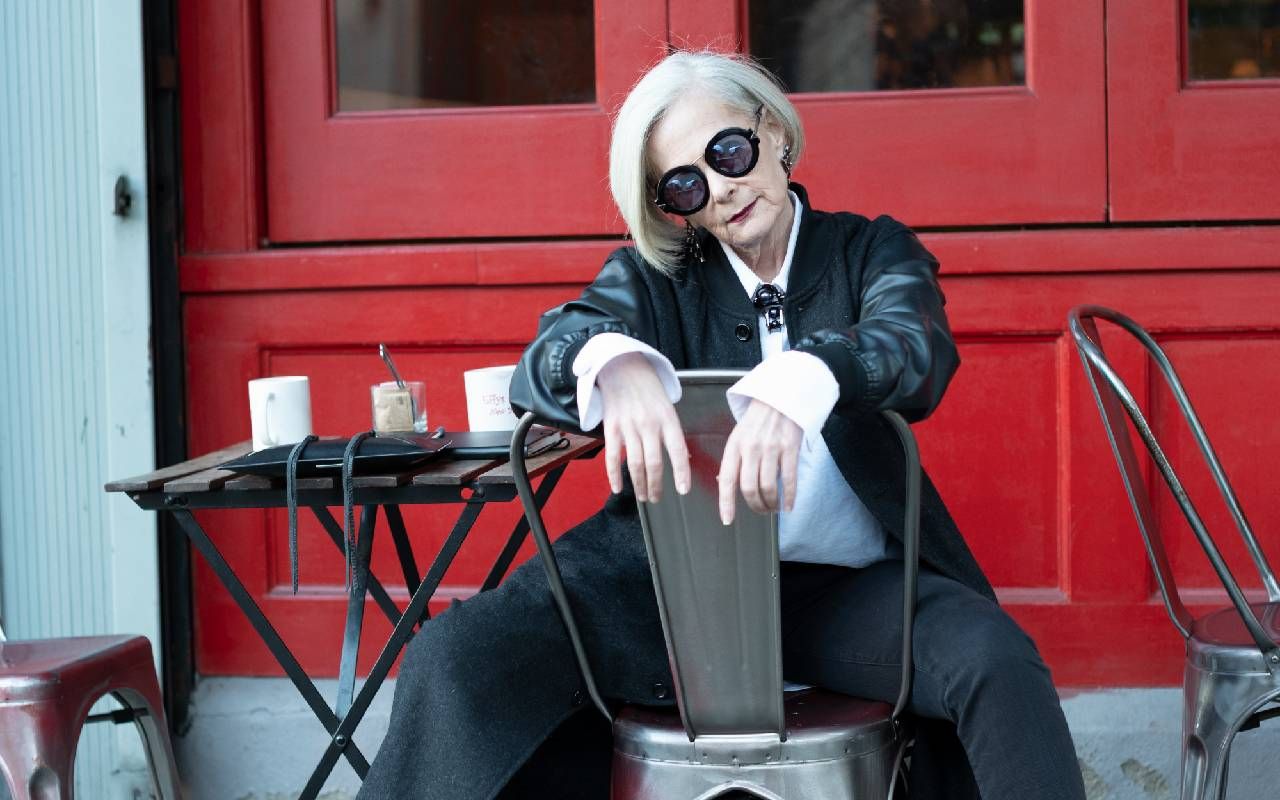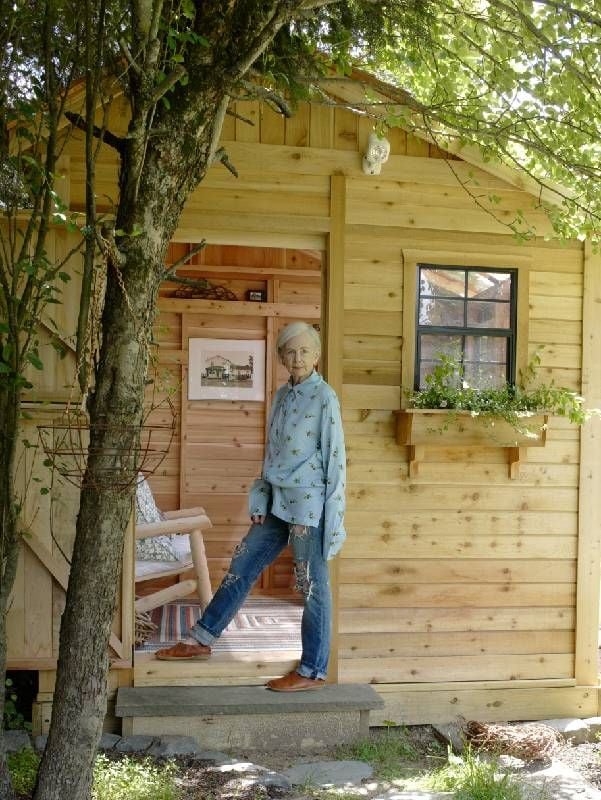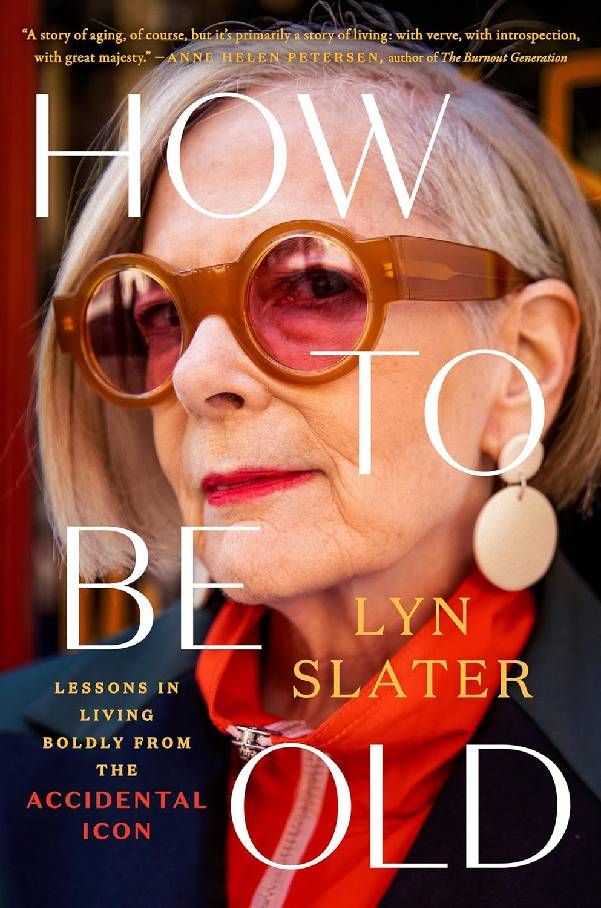Lyn Slater: The Accidental Icon Reinvents Herself — Again
Slater, 70, speaks candidly about her new book, 'How to Be Old: Lessons in Living Boldly from the Accidental Icon'

She wore sunglasses and red lipstick while modeling for brands like Valentino. She lived in New York City and posed on a fire escape in Chinatown wearing a strapless leather dress. She traveled to fashion shows in Paris and Shanghai and other faraway places. And she did all of this over the age of 60, wearing her hair its natural gray.
Lyn Slater, Ph.D., a social worker and college professor, started the Accidental Icon blog and Instagram account — amassing nearly a million followers across social platforms — as a creative outlet for herself, a woman who loves fashion and photography and a good thrift store find.
After responding to an open call for models in 2017, Slater's photos were used in an ad campaign for Valentino eyewear. She saw herself in floor-to-ceiling posters in stores and her picture in fashion magazines. That job attracted an agent, who wanted to shape Slater into a "personality." The plan sounded good and the money was significant, so she quit her teaching job and signed a modeling contract.
"I am no longer Accidental Icon. And in some ways, I never was her."
As the Accidental Icon gained more attention, Slater began to lose herself.
"I am no longer Accidental Icon. And in some ways, I never was her," Slater said in an interview. "She was a sort of alter ego, a kind of performance that I was putting out in the world. The downfall of her was when I transitioned to Instagram work primarily. And I became her, I became this digital performance, which is the moment I lost my true, embodied self. And my book really is the journey of how I got back to being Lyn Slater."
Slater lives in upstate New York with her partner, Calvin Lom. She has a daughter and two grandchildren. Next Avenue sat down with Slater, 70, to talk about "How to Be Old: Lessons in Living Boldly from the Accidental Icon," published by Plume, a division of Penguin Random House. We talked about aging and some misconceptions that, in her view, need correcting.
Next Avenue: What is the best thing about being old?
Lyn Slater: I think for me, it's that I have such a wide repertoire of experiences, skills — sort of a historical memory of survival. When faced with a challenge, I don't have to start from square one. Like every decade of my life, I've had opportunities, I've had challenges, I've had losses, I've had celebration. I've had sickness, I've had health. There's challenges, there's opportunities but now you have decades, right? You have something to stand on when you have to respond to a challenge or a loss.
In every stage of life, you found ways to incorporate creativity and take extracurricular classes. What is your advice for people nearing retirement from full-time work for how to decide to spend their new free time?

One of the gifts, if you've been lucky and privileged to get to an older age, is that you are going to be given an amazing resource, which is time. And that you can take your time figuring out what it might be that you want to do next. My experience in life has always been that I have something I'm interested in. I put myself in a place where I can either learn more about it, which might be a class, or experience, which might be an event or an institution, or even a place like a coffee house, where I can just sort of be in the moment and see what interesting things come before me.
Listen to people, have conversations. In my book, I say, a conversation might be the best adventure you can ever have and see where it takes you.
Back when you were working primarily on Instagram, describe the typical day that led to your burnout.
When you're working primarily on Instagram, you're doing a lot of sponsored posts. And so, it requires that you have to be on Instagram, leaving comments, engaging with other people, growing your following, so that you can command more of a fee.
"Listen to people, have conversations."
You're always trying to outsmart the algorithm. Over time, the brands became very sort of controlling in what they want from you. They send you photos and say, "these are the kinds of photos we want." And this is what we want you to say in the caption. And my reason for doing this was not to be an influencer. It was to be creative, and to have fun and to explore a passion.
My life became pretty much being on Instagram going to events to make sure I was being seen, not because I was going into an event to meet new people to have good conversations. And it really becomes a world where you're moving so fast, you're responding so fast, that you can't think anymore. And subsequently, I stopped feeling. I became very burnt out.
The worst part of that transition was that someone other than me became in charge of my life story and my narrative. And that did not feel good to me.
Talk about a commercial you filmed with the statement 'age is just an illusion' in it. That led to some negative comments on Instagram. How did that affect you?
The conversations I had with women after that (commercial) really hit me hard because I was being positioned by society as an example of how we should all be aging. A woman told me, "I have to work till I'm 80. I'm taking care of my partner who's ill, my own health is not good. I have to worry every day about keeping a roof over my head. And I am telling you, honey, it's all made worse by age discrimination. And I'm telling you, age is not an illusion."
'I did not want to be part of this new vision of aging, which I think now has gone too far.'
It positioned me in a place of aspirational aging without being transparent about my privilege. But the media felt that they needed to put my age into the story. And so it became 'look at this woman being in fashion at 64.' 'Look at this woman knowing how to be on social media at 65.' Then it got even worse, because it went from, 'Oh, look at this 64 -year-old professor. She's one of those senior influencers an Instagrandma.' And at that moment, I felt like, 'you're putting me in a nursing home.'
And so I quit. I felt that I was no longer in control of myself in the world. And I also did not want to be part of this new vision of aging, which I think now has gone too far.
What is this new vision of aging?
You have the decline narrative, which is you're going to have dementia and be disabled and going to require care and be a burden and you're going to ruin every generation's chances behind you because you're taking up so many resources. Then on the other hand, we have the high-resource people who are eternally youthful, running marathons at 90, the older person who needs nothing and is 100% independent.
So, the reality is, those are probably 3% of the aging population and on the either end, and the vast majority of us, and I'm putting myself there, are in the middle. The danger is that innovations and policies are only going to be put in the service of the decline narratives. And that everyone's going to think that the other agers don't need support. The majority of us do need support. We need innovative designs to help us meet our challenges, which are real, because the reality of aging is there's parts that are great, but there's parts that suck.

We need to be creative about how to respond to those in a way that we can keep living life in a way that's meaningful to us.
And the perfect example of this? 'The Golden Bachelor.' In the very first episode, they're getting out of the limousines and a woman comes out. And she's got gray curly hair and wearing a house dress and using a walker. And she starts slowly going towards the bachelor. And the bachelor says very disingenuously, 'Oh, do you need some help?' And, all of a sudden, she throws off the walker, throws off the wig and house dress. She's got a strapless gown on a perfectly healthy, fit, toned body and says, 'Do I look like I need help?'
And there were the two polarities, right in the first episode, telling you how you should be when you age and who is discarded and thrown away. I did not join the bandwagon that everybody's been on about how good this is for us. There were real messages in that, about who is considered good and beautiful. For my body to look like some of those bodies, I'd have to be putting in at least four hours of work on my appearance every day. At 70, I choose not to use my labor on my appearance. There's far more important and far more meaningful things for me, like taking care of my grandson.

